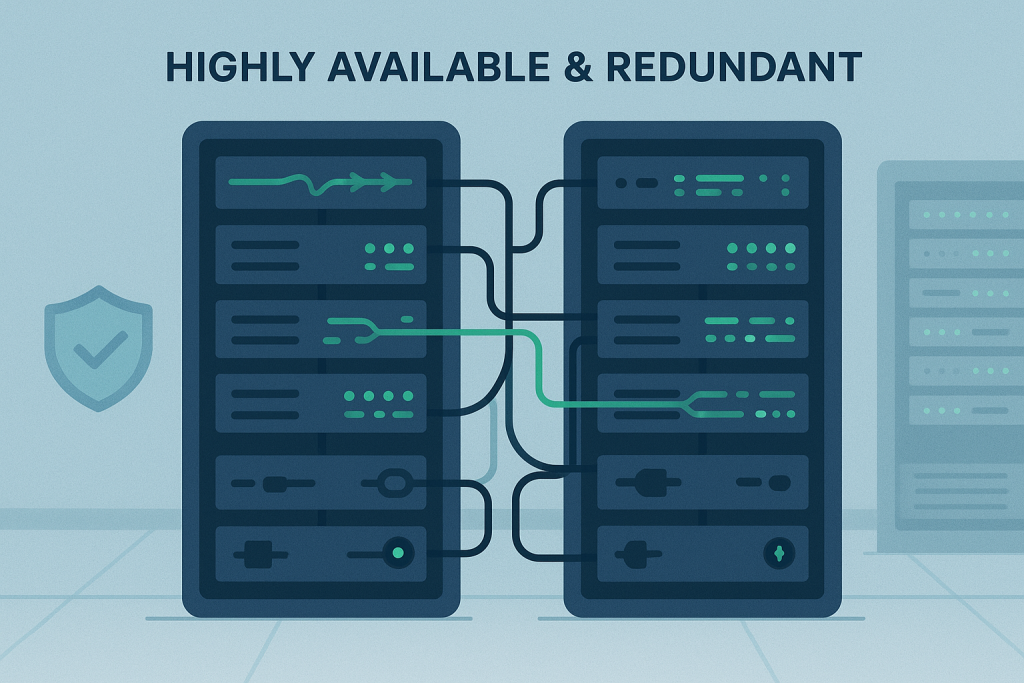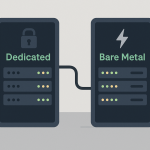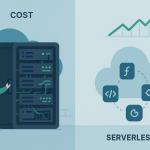In the bustling digital marketplace, an eCommerce store isn’t just a website; it’s a virtual storefront, a customer service desk, a warehouse, and a checkout counter, all rolled into one. For businesses experiencing significant growth and consistently high traffic volumes, the stakes are incredibly high. Every second of downtime, every slow page load, every hiccup in the checkout process translates directly into lost sales, frustrated customers, and damage to brand reputation. This is where dedicated hosting steps in as the indispensable backbone for high-traffic eCommerce – not just as a choice, but often as a necessity.
While shared hosting or even a well-configured VPS might suffice for nascent stores, the demands of a high-traffic eCommerce platform quickly expose their limitations. The need for unparalleled reliability and robust redundancy isn’t just a best practice; it’s a survival mechanism in a competitive landscape where customer patience is thin and alternatives are just a click away.
The Uncompromised Core: Why Dedicated Hosting Excels for eCommerce
At its heart, dedicated hosting means you get an entire physical server, its resources, and its performance exclusively for your website. There are no “noisy neighbors” hogging bandwidth, CPU cycles, or RAM. This exclusivity translates into several critical advantages for eCommerce:
- Guaranteed Resource Allocation: Unlike shared or even many VPS environments where resources can be dynamically allocated and sometimes oversubscribed, dedicated hosting provides you with 100% of the server’s processing power, memory, and storage. This predictable performance is crucial during peak sales events like Black Friday or flash sales, ensuring your site remains fast and responsive.
- Superior Performance: With all resources focused solely on your store, page load times dramatically improve. In eCommerce, speed is paramount. Studies consistently show that even a one-second delay can decrease customer satisfaction by 16%, page views by 11%, and conversions by 7%. Dedicated servers, especially those equipped with NVMe SSDs and powerful processors, virtually eliminate these bottlenecks.
- Enhanced Security: Owning the entire server significantly bolsters your security posture. You have complete control over security configurations, firewalls, and updates, reducing the attack surface compared to multi-tenant environments where a vulnerability on one site could potentially affect others. For eCommerce, where sensitive customer data (payment information, personal details) is handled, this level of security is non-negotiable for compliance (e.g., PCI DSS) and customer trust.
- Complete Customization & Control: A dedicated server offers root access, giving you the freedom to choose your operating system, install specific software, configure server settings, and optimize the environment precisely for your eCommerce platform (e.g., Magento, WooCommerce, Shopify Plus self-hosted options). This level of control allows for fine-tuning that can unlock peak performance tailored to your specific application stack.
- Scalability (Strategic): While a single dedicated server has its limits, it provides a solid foundation for vertical scaling (upgrading hardware components). More importantly, it serves as the cornerstone for horizontal scalability, allowing you to easily integrate additional dedicated servers for database, load balancing, or CDN services as your traffic grows, creating a truly robust and scalable infrastructure.
Reliability: The Unseen Force Driving Conversions
Reliability in eCommerce hosting refers to the consistent availability and stable performance of your website. It’s the assurance that your store will be open for business 24/7, without unexpected outages or slowdowns. For high-traffic eCommerce, reliability isn’t a luxury; it’s a fundamental requirement.
What contributes to reliability in a dedicated hosting environment?
- Premium Hardware: High-quality, enterprise-grade hardware components (CPUs, RAM, SSDs/NVMe drives) from reputable manufacturers are less prone to failure and designed for continuous operation.
- Optimal Network Infrastructure: A robust network with multiple upstream providers, redundant connections, and low latency ensures fast and consistent connectivity for your customers from anywhere in the world.
- Proactive Monitoring & Maintenance: Dedicated hosting providers often offer advanced monitoring tools that detect potential issues before they escalate into major problems. Regular maintenance, hardware checks, and software updates contribute to overall system stability.
- Expert Support: Access to knowledgeable technical support, often 24/7, is crucial for quickly resolving any issues that may arise. For eCommerce, specialized support can be invaluable in troubleshooting platform-specific problems.
- Data Center Quality: The physical environment of the server is just as important. State-of-the-art data centers with redundant power, cooling, fire suppression, and physical security measures are essential for continuous operation.
Redundancy: Your eCommerce Store’s Safety Net
While reliability aims to prevent failures, redundancy is about mitigating their impact when they do occur. It’s having backup systems and components in place so that if one fails, another automatically takes over, ensuring uninterrupted service. For high-traffic eCommerce, redundancy is the ultimate safety net against catastrophic downtime.
Key areas where redundancy is crucial:
- Hardware Redundancy (within a server):
- RAID Configurations: Using RAID (Redundant Array of Independent Disks), data is striped or mirrored across multiple drives. If one drive fails, the data can be rebuilt from the remaining drives, preventing data loss and minimizing downtime. RAID 1 (mirroring) and RAID 10 (striping and mirroring) are common choices for performance and redundancy.
- Dual Power Supplies: Servers often come with two power supply units (PSUs) connected to different power sources. If one PSU fails or a power line goes down, the other immediately takes over.
- Redundant Network Interface Cards (NICs): Multiple NICs ensure that if one network card fails, the server remains connected to the network through another.
- Network Redundancy (at the data center level):
- Multiple Upstream Providers: Connecting to several internet service providers prevents a single point of failure in network connectivity. If one provider experiences an outage, traffic is automatically routed through another.
- Redundant Routers and Switches: Network hardware is duplicated so that if a router or switch fails, another immediately takes its place, maintaining network flow.
- Load Balancers: These devices distribute incoming web traffic across multiple servers. If one server becomes unavailable, the load balancer automatically directs traffic to the healthy servers, ensuring continuous service and preventing server overload.
- Data Redundancy & Backup Strategies:
- Automated Backups: Regular, automated backups of your entire server (or critical data) are paramount. These should be stored in off-site or geographically diverse locations to protect against data center-wide disasters.
- Disaster Recovery Plans (DRP): A well-defined DRP outlines the steps to take in case of a major incident, including data restoration, server provisioning, and application recovery. Testing this plan regularly is critical.
- Database Replication: For high-traffic sites, replicating your database to a secondary server ensures that if the primary database server fails, the replica can quickly take over, minimizing data loss and downtime. This is crucial for transactional integrity.
- Geographic Redundancy (for ultimate resilience):
- Multi-Data Center Deployments: For the most demanding eCommerce operations, deploying your infrastructure across multiple, geographically separate data centers provides ultimate protection against regional disasters (e.g., natural calamities, major power grid failures). If one data center goes offline, the other can continue serving traffic. This often involves techniques like active-active or active-passive setups with sophisticated DNS routing.
- Content Delivery Networks (CDNs): CDNs cache your static and sometimes dynamic content on servers (PoPs – Points of Presence) located around the globe. This not only speeds up content delivery to customers by serving content from a server closer to them but also provides a layer of redundancy. If your origin server experiences an issue, the CDN can often continue serving cached content, reducing the load and providing a temporary buffer.
Building Your Redundant Dedicated Hosting Architecture for eCommerce
Implementing reliability and redundancy isn’t a one-size-fits-all solution; it depends on your budget, traffic volume, and risk tolerance. However, here’s a common layered approach:
- Start with a Single Robust Dedicated Server:
- High-performance CPU, ample RAM, NVMe SSDs.
- Hardware RAID (e.g., RAID 10 for performance and redundancy).
- Dual power supplies.
- Monitored and managed by a reputable host.
- Regular, automated backups to an off-site location.
- Add Network Resilience:
- Utilize a CDN (e.g., Cloudflare, Akamai) for static content and as a protective layer against DDoS attacks. This also provides some level of global redundancy.
- Ensure your hosting provider has multiple upstream network providers and redundant network equipment.
- Scale and Isolate Components (Horizontal Scaling):
- Separate Database Server: As traffic grows, move your database to its own dedicated server. This isolates the most resource-intensive component and improves overall performance. Implement database replication (master-slave) for redundancy.
- Dedicated Web Servers (Clustering): For very high traffic, you might have multiple dedicated web servers behind a load balancer. If one web server fails, the load balancer directs traffic to the others.
- Dedicated Caching Server: Implement a dedicated server for caching solutions like Redis or Varnish to offload processing from your web servers.
- Introduce Load Balancing:
- A hardware or software load balancer (e.g., Nginx, HAProxy) is essential to distribute traffic across your web servers and database replicas. It also plays a key role in health checks, rerouting traffic away from failing servers.
- Consider Geographic Distribution (for ultimate resilience):
- For mission-critical eCommerce, explore multi-data center deployments. This is a significant undertaking, requiring advanced configuration for DNS failover, data synchronization, and application consistency.
The Role of Managed Services in Dedicated Hosting
While the thought of managing a complex, redundant dedicated server infrastructure might seem daunting, many dedicated hosting providers offer managed services. This can be a game-changer for eCommerce businesses that want the benefits of dedicated resources without the burden of in-house IT expertise.
Managed services can include:
- Server Setup & Configuration: Initial installation of OS, web server, database, and eCommerce platform.
- Security Management: Firewall configuration, intrusion detection, regular security audits, and patch management.
- Monitoring & Alerting: 24/7 monitoring of server health, performance, and uptime, with immediate alerts for issues.
- Backup Management: Configuration, verification, and restoration of backups.
- Software Updates & Patching: Keeping your OS and core software up to date.
- Performance Optimization: Ongoing fine-tuning of server settings, database queries, and caching mechanisms to maximize speed.
- Disaster Recovery Assistance: Helping you execute your DRP in case of an incident.
Opting for managed dedicated hosting allows eCommerce owners to focus on their core business – marketing, sales, and customer experience – while the hosting experts ensure the underlying infrastructure is robust, reliable, and redundant.
Choosing the Right Dedicated Hosting Provider
Selecting a dedicated hosting provider for high-traffic eCommerce is a critical decision. Here are key factors to consider:
- Reputation and Experience: Look for providers with a proven track record in dedicated hosting, especially for eCommerce.
- Data Center Quality: Investigate their data center specifications: power redundancy (N+1, 2N), cooling, network connectivity, and physical security.
- Hardware Specifications: Ensure they offer modern, enterprise-grade hardware that meets your performance needs.
- Network Infrastructure: Ask about their network topology, peering agreements, and guaranteed bandwidth.
- Scalability Options: Can they easily add more dedicated servers, integrate load balancers, and support multi-server setups as you grow?
- Managed Services: If you need help, understand the scope of their managed services and what’s included.
- Support: Evaluate their support response times, expertise, and availability (24/7/365).
- SLA (Service Level Agreement): A strong SLA guarantees uptime and outlines compensation for downtime. Look for high uptime guarantees (e.g., 99.9% or 99.99%).
- Security Features: What security measures do they have in place at the network and server level?
- Cost: While not the only factor, ensure the pricing aligns with your budget and offers good value for the features and services provided.
The Future-Proofing Investment
In the high-stakes world of eCommerce, the small savings from opting for less robust hosting can be dwarfed by the massive losses incurred from downtime, slow performance, or security breaches. Dedicated hosting, especially when engineered for reliability and redundancy, isn’t just an operational expense; it’s a strategic investment in the future of your online business. It provides the peace of mind that your store can handle sudden surges in traffic, remain secure against threats, and consistently deliver a fast, reliable shopping experience that keeps customers coming back.
As your eCommerce venture scales, moving to or implementing a dedicated hosting solution with built-in reliability and redundancy ceases to be an option and transforms into a fundamental requirement for sustainable growth and long-term success. It’s about building a digital storefront that stands strong, no matter how many customers walk through its virtual doors.



